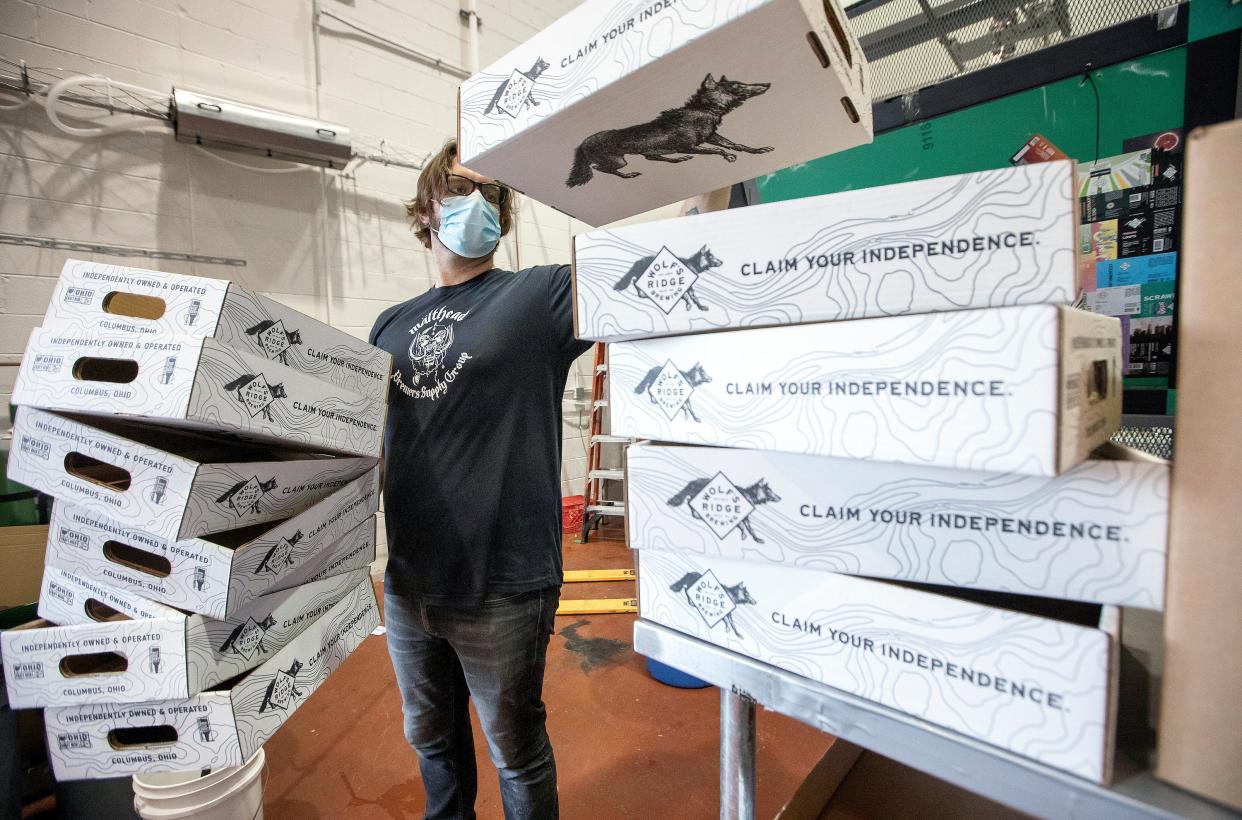Ohio vaccine mandate ban 'loophole' would hurt businesses, tie their hands, leader says

Ohio is one of the most regulated states in the nation.
Those regulations have been established for Ohio businesses by our government, and if they are excessive, they make it difficult for companies to make the decisions necessary for their organizations to succeed — and too many regulations stunt economic growth and competitiveness.

Our legislative leaders at the Statehouse are well aware of the excessive regulations and the negative impact they have on our economy. Economic growth is crucial for attracting investments, creating jobs, and supporting the American dream for Ohio families.
More: Capitol Insider: Pat Tiberi says there's plenty of blame for current political nastiness
Without that continued growth, we fall behind our peer states — as evidenced by Ohio losing a Congressional district in the recent census.
However, Ohio has emerged from the pandemic with strength and our businesses are gaining momentum. But if House Bill 218 passes, that momentum will be slowed as our state signals to companies that we are not following through on our commitment to cut regulations.
House Bill 218 ties companies’ hands when it comes to their employees’ vaccination status. It nullifies any vaccination requirement that a business or organization might institute by mandating businesses provide a loophole for all employees to opt-out of the vaccine.
More: Letters: 'Big-monied special interests' pulling the strings of unscrupulous politicians
To be clear, the Biden administration’s proposed business vaccine mandate is an equal example of government overreach. Though it takes the opposite policy side as House Bill 218 through across-the-board mandates, both are equivalent and unwarranted intrusions of the free market.
Businesses of all sizes and industries from all corners of our state have suffered enormous losses from the spread of COVID-19. They were forced to make gut-wrenching choices to balance protecting lives and livelihoods, all the while hoping and praying for a vaccine so they could put the nightmare behind them and focus on the brighter days ahead.
More: Opinion: Passing anti-vaccination bill doesn't mesh with Ohio House's pro-life claims
The brighter days are here.
But two problems plaguing businesses remain: a workforce shortage and supply chain deficiencies.
For companies facing a workforce shortage, implementing a vaccine mandate would likely not benefit them as they look for qualified applicants based solely on their skill level. Yet, for other companies that are trying to keep up with the demands of the supply chain, a vaccine requirement might be something better suited for their organizations to avoid outbreaks and exposure quarantines that disrupt productivity.
More: Ohio attorney general, sheriffs sue Biden administration over COVID-19 vaccine mandate
Insurance premiums must also be factored into an employer’s decision. We know the virus is significantly worse for unvaccinated individuals, and 97 percent of the hospitalizations in the state are those who have not taken the shot. For those requiring hospital treatment, the cost averages nearly $42,000 per person.
That expense is passed on to the employer and eventually the other employees that are on the company’s health care plan. Businesses need the ability to control their health care costs and provide affordable premiums for their workforce rather than having to foot the bill for treatment that could have been avoided with a vaccine.
The bottom line is that businesses must weigh the consequences and advantages that come with vaccine requirements and make that ultimate decision for themselves. A one-size-fits-all mandate will not work, and the burdensome regulations must end.
With the help of science, technology, and data, we have come a long way since March 2020.
Let’s give businesses the freedom to make the educated choice to do what is best for their employees and customers. Ultimately, the free market will dictate whether they made the right decision.
Pat Tiberi is the president and CEO of the Ohio Business Roundtable, and a former Congressional member. The Ohio Business Roundtable is an organization of nearly 100 presidents and CEOs from Ohio’s top companies throughout the state.
This article originally appeared on The Columbus Dispatch: What do Ohio businesses say about House Bill 218 passes, vaccine mandate ban

